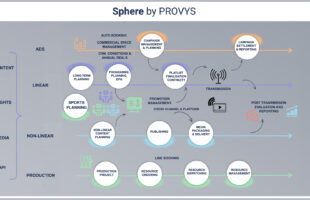The relevance of public broadcasting in the digital age was one of the key issues discussed at the Public Broadcasters International conference, held in Singapore last month.
Former BBC producer and media consultant Philip Harding said in today’s world of multiple sources of information, the role of public broadcasters and its service to citizens and nationhood is even more important.
“Technology has led to the proliferation of media,” he said. “Media is becoming more customized and audiences are more atomized into smaller interest groups.”
He noted that the digital age has also led to public ‘space’ diminishing and with the proliferation of news and current affairs programmes means a viewer can now find a point of view that matches their own.
“The echo effect is very dangerous. Alternative views, beliefs and information can now be completely ignored. This is unhealthy and leads to division and polarization.”
He said this is why public broadcasting must remain not only relevant but also a strong, central and objective voice, with a national point of interest at its core. In the digital age, public broadcasting can live up to its ideals of serving the public interest and being a place where all are welcome, are equal and can make their own decisions.
Harding believes commercial imperatives are putting an end to investigative journalism due to “analogue dollars not equating to online cents”. Private media organizations are now less willing to spend resources getting to the bottom of a story and tackling an issue in more than a few soundbites.
“For public broadcasters, the digital space provides an amazing opportunity to not only be owned by the public domain but be owned in practice also… To be part of it, rather than just a consumer of it.” He cited examples of BBC World’s Have Your Say programme and the use of social media bringing light to issues. “We can invite the public to join our editorial processes.”
With such engagement, there will be cause for more support of such programming and gives the public a vested interest in what is being broadcast.
“The fragmentation and diversification of media and the ensuing economic pressures on commercial media, mean that public broadcasters are in an even more important position to act on behalf of the public because others will be much less able – or willing – to do it,” he said.








